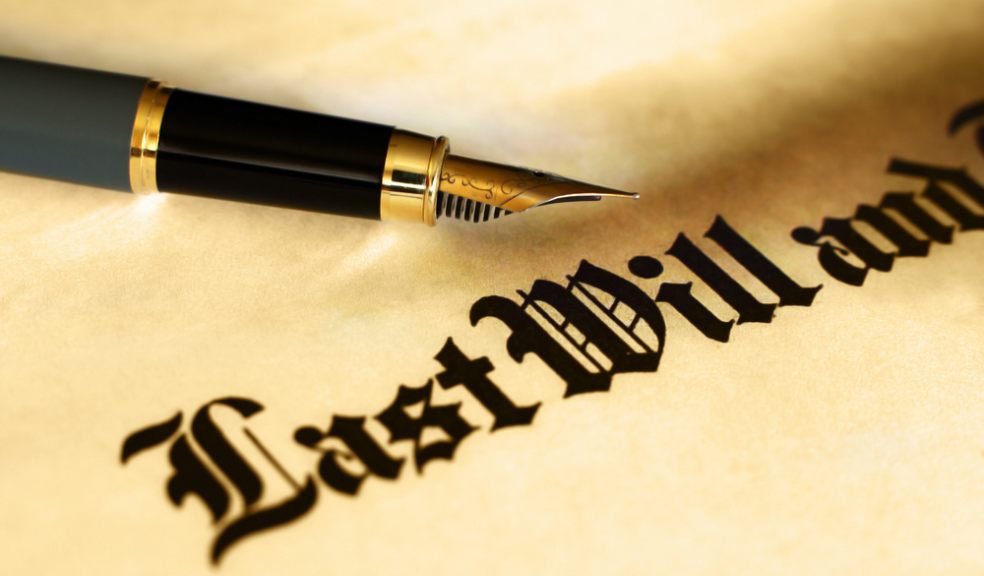
Increasing number of legacy disputes for charities
You are pleased to learn that your charity has been left a large legacy or even the residue of the Estate under a generous donor's Will. Then 'bang' comes the solicitors' letter – a disappointed beneficiary does not think the Will is valid. A legacy officer's nightmare no doubt and one which in these trying times is becoming more common, not less.
Probate litigation has increased in recent years and appears set to continue to do so. Statistics from the Ministry of Justice show that probate actions nearly doubled during the period from 2006 to 2011. Charities increasingly face legacy disputes.
Those disputes which reach Court are just the tip of the iceberg. The vast majority of cases settle well before trial. For every case which reaches trial we act in numerous others which reach a negotiated settlement.
The increase in probate disputes is due to an amalgamation of factors. Put simply it often makes economic sense for disappointed beneficiaries to dispute a Will. The housing boom has increased the value of Estates. Increased public awareness of probate disputes has made litigation more acceptable. Families are more fragmented now with it being common for people to have had several partners across their lifetime and children from different relationships. This greatly increases the likelihood of family disputes.
The rise in probate disputes is unlikely to be alleviated by the recent decision of the government not to regulate Will writing. The government rejected a proposal of the Legal Services Board ("LSB") to make Will writing a regulated activity.
The problem is that some unregulated Will writers are inadequately qualified and even uninsured. This leaves consumers without any recourse when things go wrong. If consumers continue to be exposed to such risks, it seems quite likely that the result will be an increase in the number of disputes relating to Wills.
A recent case concerning a charity legacy dispute is a good example of litigation which could have been avoided by better Will drafting. The case was Phillips v Royal Society for the Protection of Birds [2012] EWHC 618. The Deceased left a gift in her Will to the named charity. The charity ceased to operate following various controversial events. The charity was operating as a charitable company and its corporate legal personality continued to exist at the date of the Deceased's death, although it was struck off the register of companies a few days later. The relevant clause in the Will did not adequately deal with this situation. Ultimately, it was decided that the gift was diverted to another related charitable purpose. Clearly though, litigation could have been avoided had the relevant clause properly set out the testator's wishes in the event that the charity in question ceased to exist.
It can be difficult for charities to reduce the risk of probate disputes. The first a charity hears about a legacy is often when they are contacted by the executors. The family, on the other hand, are likely to have made enquiries about the provisions of the Will soon after the testator died.
If a charity is notified by a donor that he or she would like to leave a legacy to the charity there are things that can be done to help reduce the likelihood of a probate dispute. If the charity feels in a position to, they should encourage the donor to have their Will drawn up by a specialist solicitor, who should keep a good record of their reasons for wanting to benefit the charity on their death. We would also advise the testator to set out their reasons for leaving the legacy to the charity in a letter which is kept alongside their Will.
If appropriate, the charity might encourage the testator to explain to their family why they have drawn up their Will to benefit a charity, so that there are no surprises for their family. If the testator has a long standing relationship with the charity we would encourage the charity to keep documentary evidence of this.
A charity should seek legal advice quickly if a probate dispute arises. This is particularly important because when there are challenges to the validity of a Will the charity often starts off on a back foot. The charity obviously knows less about the deceased's family circumstances and the family will probably have already started to gather evidence to build their case – often even before the charity was aware of the legacy left to them.
Once the charity has received legal advice on the merits of the claim against them, it can make a commercial decision about how to proceed depending on the strength of its case. Charities should remember that the person(s) wishing to dispute the Will need more than a moral claim. They need a legal reason why the Will might not be valid.
If a dispute does arise, it is nearly always in the interests of all parties to a dispute to try to reach settlement. The closer a case gets to trial the higher the costs of all parties and the greater the potential costs liability for the losing party in respect of the other side's fees. In our experience most cases settle before trial.
In order to protect legacy income and also the charity's reputation and balance sheet, legacy disputes need to be handled with the utmost diplomacy and always on a case by case basis.
For more information about legacy disputes, please contact tony.cockayne@michelmores.com.













